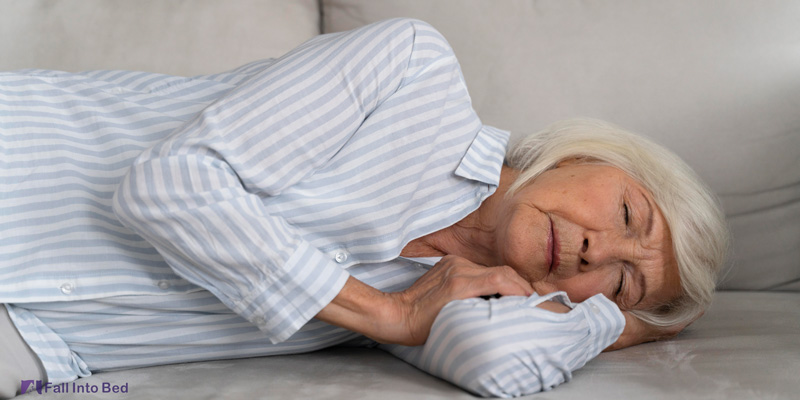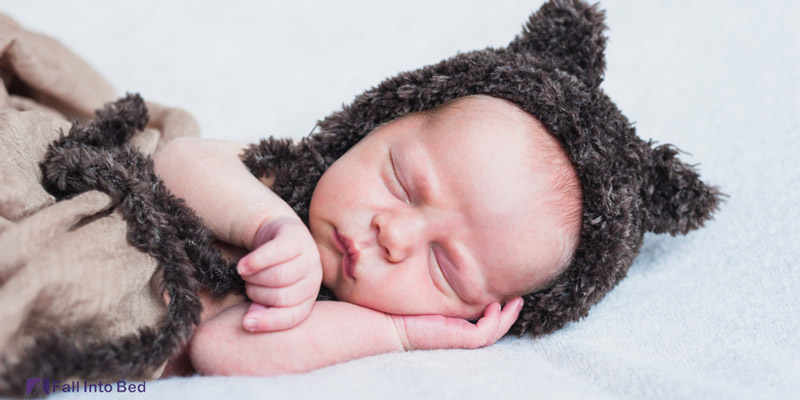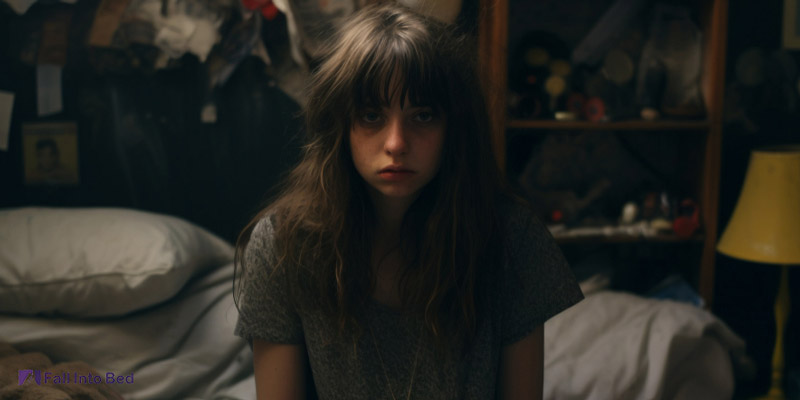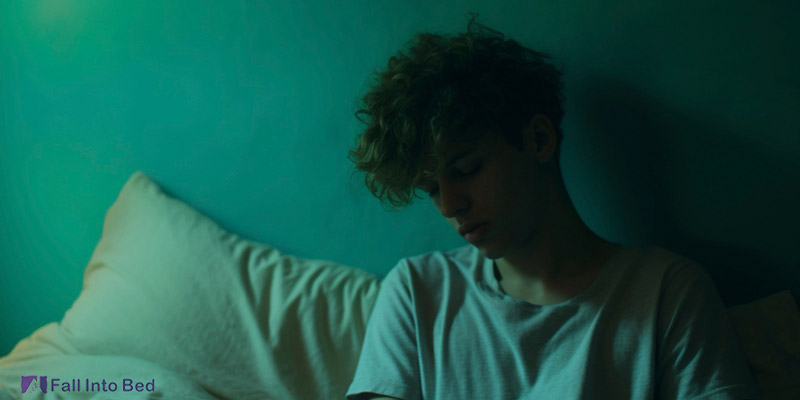You have probably noticed how little your grandparents sleep. And you might be wondering why this happens. There are a lot of factors that should be consdered when we talk about sleep in the elderly. Stay with us to learn more about the reasons why older people get less sleep.
How does aging affect sleep?
Our need of sleep changes throughout life. Children need more sleep compared to adults. But to your surprise, older people just need as much sleep as a young adult which is 7-8 hours a day.
But there are some factors that can affect their sleep and make it shorter than what it should be. Changes in their circadian rhythm, sleep hormone and physical endurance can affect their sleep.
Why do older people sleep less?
Aging can significantly impact sleep, manifesting in various changes that often lead to reduced sleep quality and quantity. Older people tend to sleep less due to a variety of physiological, psychological, and environmental factors. Here are some of the key reasons:
1. Changes in circadian rhythm and sleep cycle
As people grow older, their internal body clock changes. That is why older people get sleepy earlier in the evening and wake up earlier in the morning. This change in circadian rhythm can result in less overall sleep. Also, the older you get, the less time you spend in stage 3 of sleep cycle which is where deep sleep occurs. This is why older people tend to wake up easier.
Also, they produce less melatonin, which is a sleep promotion hormone.
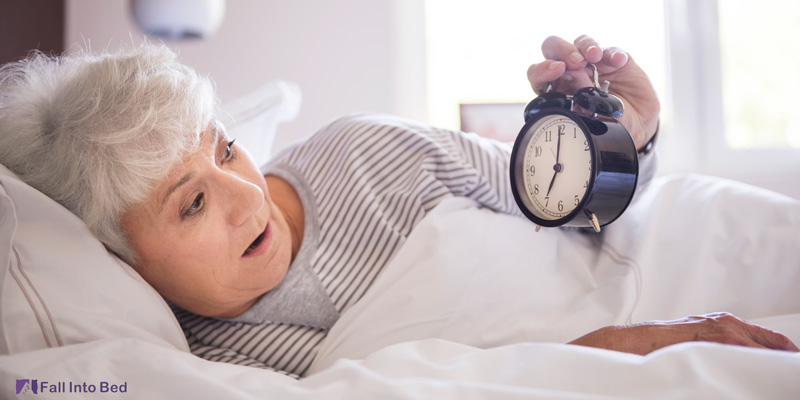
2. Health conditions
Many old people suffer from chronic diseases like arthritis, heart conditions, diabetes and respiratory issues. Additionally, sleep disorders like sleep apnea and restless leg syndrome can have a negative effect on the quality and quantity of their sleep.
3. Mental health
As we get older, we might experience depression and anxiety more than before. These mental state changes can be due to life changes like retirement, isolation and etc. There is no doubt that mental health has a huge impact on sleep quality.
4. Lifestyle factors
Physical activity decrease in older people. Also less exposure to natural light and a change in daily routines will greatly impact sleep in the elderly.
5. Bladder issues
Older people wake up more often during the night due to the increased frequency of urination (nocturia) This can disrupt their sleep cycle.
Sleep disorders in older people
Insomnia
This sleep disorder makes it difficult to fall asleep and stay asleep. Even though insomnia can be caused by different reasons, it’s one of the most common sleep disorders in older people. It results in poor sleep quality and can lead to daytime fatigue, mood disturbances, and impaired functioning.
Treatment often involves improving sleep hygiene, cognitive behavioral therapy, and sometimes medication.
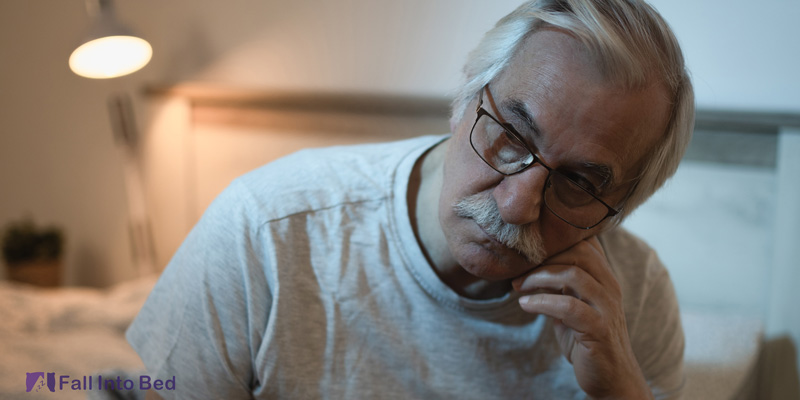
Sleep apnea
This disorder affects your breathing during sleep and causes pauses between your breaths that can last for 10 seconds to two minutes. This disorder can interrupt sleep cycle and by affecting the oxygen levels int he body it will lead to headaches and daytime sleepiness.
REM sleep behavior disorder
REM sleep behavior disorder (RBD) is a condition where individuals act out their dreams during the REM stage of sleep due to a lack of the normal muscle paralysis that usually occurs. This can result in physical movements, vocalizations, and potentially violent actions.
RBD is more common in older adults and can be associated with neurodegenerative diseases. Treatment typically involves creating a safe sleep environment and using medications like melatonin.
Restless leg syndrome
Restless leg syndrome (RLS) is a neurological disorder characterized by an uncontrollable urge to move the legs. These symptoms typically worsen during periods of rest, especially in the evening or at night, and can interfere with sleep.
Moving the legs provides temporary relief. The exact cause of RLS is unknown, but it can be associated with other conditions such as iron deficiency and chronic diseases. Treatment options include lifestyle changes, iron supplements, and medications to manage symptoms.
Do older people need less sleep?
There has always been a wrong misconception that older people need less sleep. I’m here to tell you this is not that true! Older people need as much sleep as a young adult.
they typically get less sleep rather than need less sleep. While the general sleep requirement for them is still 7-8 hours, older adults often experience changes in sleep patterns and quality.
Factors such as altered circadian rhythms, health conditions, medications, and lifestyle changes can lead to more fragmented and lighter sleep, resulting in less overall sleep time. Despite getting less sleep, older adults still need sufficient sleep to maintain optimal health and well-being.
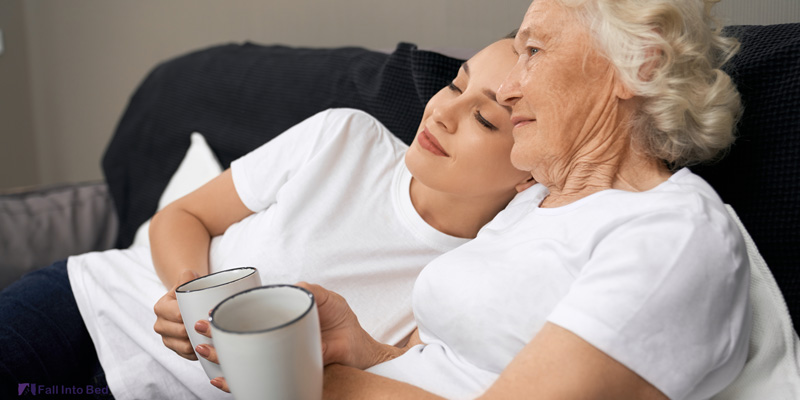
Tips for a better sleep in older people
Proper sleeping position
If there is any physical condition that is interrupting your sleep due to the pain, it’s important to find the right position to reduce the discomfort. The best position for lower back pain is sleeping on the back with a supportive pillow under the knees.
Also if you suffer from knee pain or specifically IT band syndrome, back sleeping and sleeping on the unaffected side can be a comfortable position.
One of the best sleeping positions for breathing problems such as sleep apnea, snoring is sleeping on the side or on the stomach. These positions can help keep the airways open.
Address medical conditions
Like it was mentioned before, medical conditions can affect sleep. So, it’s essential to have a monthly ckeck-up to make sure the pain and the symptoms of the conditions are under control.
Taking care of mental health
we should pay more attention to the old people around us as they’re experiencing lots of changes in their life, their sleep schedule included. Spending time with them and making sure they’re physically and mentally healthy can have a huge positive impact not just on their quality of sleep, but also on their quality of life.
Sweet dreams!

